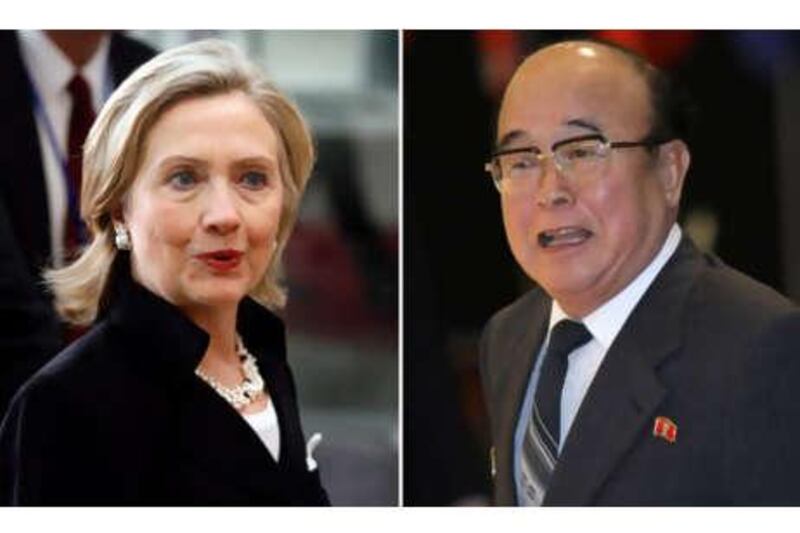HANOI, Vietnam // North Korea today threatened the United States and South Korea with a "physical response" to planned weekend naval exercises as tensions with the communist nation rose in the aftermath of the sinking of a South Korean warship blamed on the North. In Vietnam for a Southeast Asian regional security forum, the US Secretary of State Hillary Clinton and a North Korean official traded barbs over the ship incident, the upcoming military drills and the imposition of new US sanctions against the North.
The spokesman for the North Korean delegation to the talks, Ri Tong Il, repeated Pyongyang's denial of responsibility for the March sinking of the ship that killed 46 South Korean sailors and said the upcoming military drills were a violation of its sovereignty that harkened back to the days of 19th-century "gunboat diplomacy". The exercises will be "another expression of hostile policy against" North Korea. "There will be physical response against the threat imposed by the United States militarily," Mr Ri told reporters in Hanoi.
Shortly before he spoke, Mrs Clinton had lashed out against belligerent acts by the North, warning that it must reverse a "campaign of provocative, dangerous behavior" if it wants improved relations with its neighbours and the United States. She said stability in the region, particularly on the Korean peninsula, depends in large part on convincing an "isolated and belligerent" North Korea to alter course and return to nuclear disarmament talks.
Peaceful resolution of the issues on the Korean peninsula will be possible only if North Korea fundamentally changes its behavior, Mrs Clinton told the gathering of top officials from the 10 members of the Association of Southeast Asian Nations and countries with major interests in the area like the US, China, Japan, North and South Korea and Russia. There was no sign that members of the US and North Korean delegations would meet or even cross paths at the annual security forum, which has in the past been a venue for rare talks between the two sides.
On Wednesday, Mrs Clinton announced in the South Korean capital that the US would slap new sanctions on the North to stifle its nuclear ambitions and punish it for the sinking of the South Korean ship. The penalties will target the country's elite by taking aim at illicit activities, such as counterfeiting cigarettes and cash and money laundering. Mrs Clinton was in Seoul to show support for South Korea along with the US defence secretary Robert Gates.
In addition to North Korea's behavior and its nuclear program, Clinton raised concerns about potential atomic collaboration between the North and Myanmar, also known as Burma, which is restricted by UN agreements. Numerous reports in past months have suggested that Myanmar's military rulers are attempting to develop nuclear weapons with North Korean help. Mrs Clinton said "recent events" had called into question Myanmar's pledges to abide by its international commitments, including UN sanctions, the requirements of its nuclear watchdog, the International Atomic Energy Agency, and the Nuclear Non-Proliferation Treaty.
* AP





